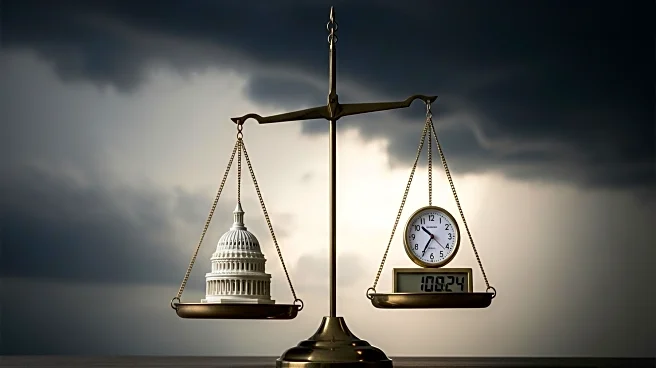What's Happening?
The U.S. government is currently in its sixth day of a shutdown, with lawmakers at an impasse over budgetary agreements. The Senate is scheduled to vote on a short-term funding bill in an attempt to reopen the government. This shutdown has resulted from a failure to reach consensus on budget allocations, affecting various federal operations and services. The deadlock continues as political leaders struggle to find common ground, with significant implications for federal employees and public services.
Why It's Important?
The government shutdown has significant ramifications for federal employees, who may face furloughs or work without pay. It also impacts public services, including national parks, museums, and various federal agencies, which may experience disruptions. The economic implications are considerable, as prolonged shutdowns can affect consumer confidence and economic stability. The political stalemate highlights the challenges in bipartisan cooperation, potentially influencing public perception and voter sentiment ahead of future elections.
What's Next?
The Senate's upcoming vote on a short-term funding bill is a critical step in resolving the shutdown. If passed, it could temporarily restore government operations while longer-term budget negotiations continue. However, if the vote fails, the shutdown may persist, exacerbating its impact on federal employees and services. Political leaders may face increased pressure from constituents and stakeholders to reach a resolution, potentially leading to further negotiations or alternative legislative proposals.











